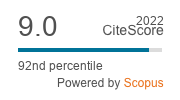The use of probiotics for farm animals has increased considerably over the last 15 years. Probiotics are defined as live microorganisms which can confer a health benefit for the host when administered in appropriate and regular quantities. Once ingested, the probiotic microorganisms can modulate the balance and activities of the gastrointestinal microbiota, whose role is fundamental to gut homeostasis. It has been demonstrated that numerous factors, such as dietary and management constraints, can strongly affect the structure and activities of the gut microbial communities, leading to impaired health and performance in livestock animals. In this review, the most important benefits of yeast and bacterial probiotics upon the gastrointestinal microbial ecosystem in ruminants and monogastric animals (equines, pigs, poultry, fish) reported in the recent scientific literature are described, as well as their implications in terms of animal nutrition and health. Additional knowledge on the possible mechanisms of action is also provided.
Probiotics in animal nutrition and health
F. Chaucheyras-Durand Related information
1 Lallemand Animal Nutrition, 19 Rue des Briquetiers, 31702 Blagnac, France
2 INRA Unit of Microbiology, CR Clermont-Ferrand/Theix, 63122 Saint-Genè Champanelle, France
, H. Durand Related information2 INRA Unit of Microbiology, CR Clermont-Ferrand/Theix, 63122 Saint-Genè Champanelle, France
1 Lallemand Animal Nutrition, 19 Rue des Briquetiers, 31702 Blagnac, France
Beneficial Microbes: 1
(1)- Pages: 3 - 9

Published Online: June 30, 2009
Abstract
>
Issue Details
Beneficial Microbes

Beneficial Microbes

Print ISSN: 1876-2883
Online ISSN: 1876-2891
2022 Journal Impact Factor
5.4
source: Journal Impact Factor 2023™ from Clarivate™

Institutional Offers
For institutional orders, please contact [email protected].
-
A.A. Hibberd, C.C. Yde, M.L. Ziegler, A.H. Honoré, M.T. Saarinen, S. Lahtinen, B. Stahl, H.M. Jensen and L.K. Stenman
-
E.E. Blaak, E.E. Canfora, S. Theis, G. Frost, A.K. Groen, G. Mithieux, A. Nauta, K. Scott, B. Stahl, J. van Harsselaar, R. van Tol, E.E. Vaughan and K. Verbeke
-
K. Venema, J. Verhoeven, C. Beckman and D. Keller
-
E. Arvidsson Nordström, C. Teixeira, C. Montelius, B. Jeppsson and N. Larsson
-
J.E. Haarhuis, A. Kardinaal and G.A.M. Kortman
-
E.E. Blaak, E.E. Canfora, S. Theis, G. Frost, A.K. Groen, G. Mithieux, A. Nauta, K. Scott, B. Stahl, J. van Harsselaar, R. van Tol, E.E. Vaughan and K. Verbeke
-
K. Lippert, L. Kedenko, L. Antonielli, I. Kedenko, C. Gemeier, M. Leitner, A. Kautzky-Willer, B. Paulweber and E. Hackl
-
K. Tsilingiri and M. Rescigno
-
M. Ozen and E.C. Dinleyici
-
Y. Kobayashi, T. Kuhara, M. Oki and J.-Z. Xiao


